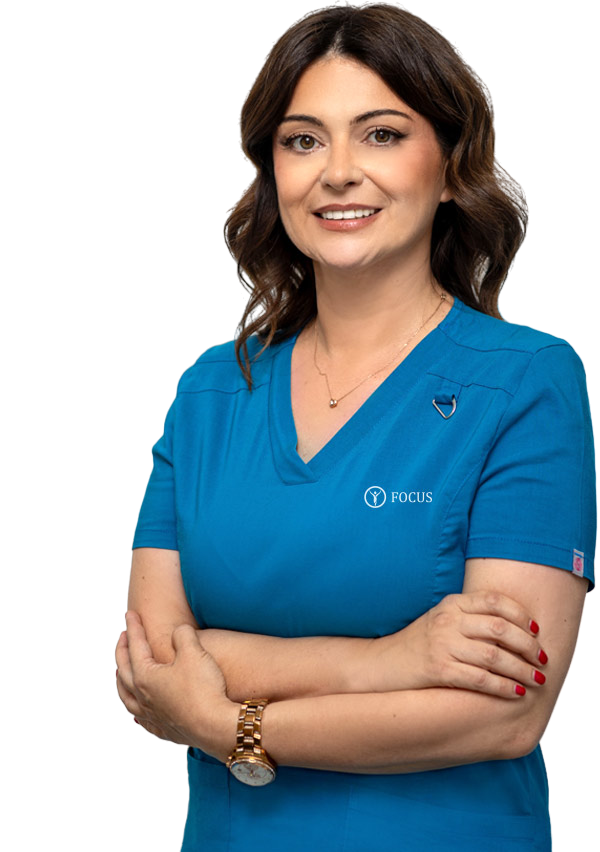Cash
Through a current account
Electronic card (Visa, Master, Dina, etc.)

Shockwave therapy
Fokus Fizical 100% guarantees fast and effective healing
Super DISCOUNT! 20% on all therapies in Oktober!
Do not treat yourself over the Internet! Make an appointment via Viber now!
Kinesitherapy is one of the most common methods of physical therapy due to the wide range of benefits it offers in the treatment of patients. The name itself comes from the Greek words "kinesis" (movement) and "therapia" (therapy), which indicates that this procedure is based on the application of movement for therapeutic purposes. The movements are systematized in order to locate and engage the muscles that are affected by the problems. Physiotherapy can focus on one specific muscle or, more often, on a group of muscles that is related to the problem.
The exercise system is formed by a specialist doctor with the aim of engaging the muscles, but also other systems of the body, such as cardiovascular and respiratory. This leads to a general improvement of the patients' condition. Kinesitherapy is primarily used as part of rehabilitation, but it is often recommended to patients who have other diseases, such as respiratory problems, diseases of the heart and blood vessels, or neurological diseases. This type of therapy brings positive results both locally, for the region being treated, and systemically, including different systems of the human organism.
Kinesitherapy is not only used to solve problems caused by injuries or chronic diseases, but also as prevention. It has been proven that it strengthens the immune system, prevents chronic conditions such as osteoporosis, and has a positive effect on psychological conditions.
It is known that due to the absence of physical activity, body functions weaken, muscle atrophy, joints and organ tissues weaken, which can lead to numerous health problems. Doctors recommend daily moderate physical activity, which may include walking and exercises.
Kinesitherapy requires an active approach from patients, who, with the professional support of a therapist, implement a predetermined system of exercises. The goal is to quickly train the musculoskeletal system for independent functioning after injury or illness.
Exercises are applied to achieve optimal functioning of injured or sick muscles, as well as the whole body. Application of specific exercises can increase muscle endurance and mobility through active participation of patients during therapy.
The application of kinesitherapy leads to:
Kinesitherapy is especially recommended for athletes, both professional and recreational. A properly selected exercise system increases strength, elasticity, endurance, speed and fitness. When working with athletes, devices or additional equipment are often used in order to achieve maximum results.
Types of exercises
Depending on the indication and condition of the patients, an individually adapted system of exercises is created. They can be:
An important segment of kinesitherapy consists of stretching exercises, which relax muscles while simultaneously increasing vascularization. There are also strength exercises that can be:
Precisely defining the diagnosis is crucial for determining the therapy that leads to the improvement of the patient's condition in the fastest and most successful way. Kinesitherapy can include exercises for injured, immobile or painful parts of the musculoskeletal system, but it can also be preventive.
A combination of modalities
Taking into account the patient's condition, the doctor determines a combination of different modalities of kinesitherapy, which may include:
It is recommended for patients with:
The main objectives include:
The forms of kinesitherapy applied in physiotherapy centers are numerous, but the most common are:
Kinesitherapy is essential in every phase of treatment or rehabilitation. The main goal of kinesitherapy treatment is to restore the physiological function of the injured segment or the entire body. This is achieved by applying adequately prescribed and correctly dosed exercises.
The exercise system is designed so that, through different types of movements and the application of rehabilitation techniques, patients can recover effectively from injuries and return to normal life activities.
What is kinesitherapy?
Kinesitherapy is the application of therapeutic movement in the treatment of various conditions and improvement of the body's functionality.
What is the general goal of kinesitherapy?
The goal is maximum recovery of the patient's locomotor function and other functions.
What does the kinesitherapy process look like?
Each patient receives an individually adapted exercise plan, which may include active, passive or assisted movements.
How long does the therapy last?
The duration of therapy varies, but usually lasts from several weeks to several months, depending on the patient's condition.
How can I make an appointment?
You can contact us by phone or our website to schedule an inspection.
What are the benefits of kinesitherapy?
Kinesitherapy strengthens muscles, increases elasticity, improves circulation and has a positive effect on various psychological problems.
What types of exercises are used in kinesitherapy?
Exercises can be active, passive, stretching, isodynamic, isometric or isokinetic.
Can kinesitherapy be preventive?
Yes, kinesitherapy can also be used as a preventive measure to prevent chronic conditions such as osteoporosis.
When is it advisable to use kinesitherapy?
It is recommended for orthopedic, rheumatological and neurological problems, as well as for corrective exercises.
Therapeutic day (2-3 classic physical therapy procedures and SIS or hilt with kinesi therapy)
6.500 din -
4.000 din
6.500 din -
4.000 din
Therapeutic package of 10 treatments and control examination
55.000 din -
45.000 din
55.000 din -
45.000 din
Individual exercises (30 min)
2.500 din -
2.500 din
2.500 din -
2.500 din
Individual exercises (45 min)
3.500 din -
3.000 din
3.500 din -
3.000 din
Individual exercises (30 min) 10 sessions
30.000 din -
22.000 din
30.000 din -
22.000 din
Physical therapy for lumbar spine
4.000 din
4.000 din
Physical therapy for cervical spine
4.000 din
4.000 din
Physical therapy for treating pain in both knees
5.000 din
5.000 din
Physical therapy for pre-surgical preparation of the hip with kinesitherapy
4.500 din
4.500 din
Cash
Through a current account
Electronic card (Visa, Master, Dina, etc.)
See the experiences of our satisfied patients who successfully recovered with the help of our physical therapy. Get acquainted with the testimonies of patients who faced various joint injuries, sports knee injuries, back injuries and similar problems, which we quickly, efficiently and successfully treated.
Aesthetic surgery
Focus Fizikal is a leading private clinic for physical therapy in Belgrade. For more than 10 years, we have been providing high-quality services that enable quick recovery and healing of our patients.

For all our current and future patients, we have made it possible to schedule an appointment online.